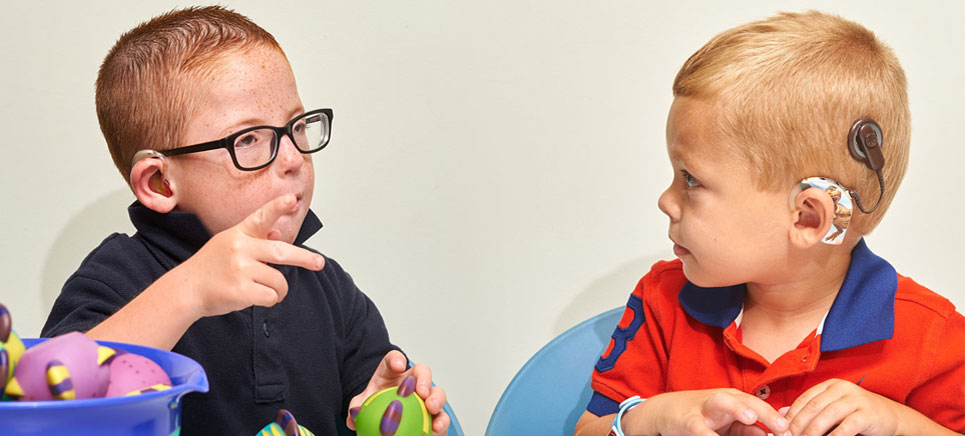There’s no denying to the fact that hearing is an essential component for the development of language and speech of a child. Children with difficulties in listening are at risk of developmental delays as communication becomes a hurdle to their learning process. The earlier a hearing loss occurs, the more is the risk of developmental delays. And, at the same time, the earlier the problem is recognized the lesser would be the collateral damage to the child’s development due to hearing loss.
It is important to understand how hearing loss may affect a child’s development in order to be aware of the steps that can be taken to lessen the overall impact of hearing loss. Through this article, let us tell you specifically where a child with hearing loss might need extra support to come at par with other children of their age.
Limited Volume of Vocabulary
A child with a hearing loss often faces the challenge of a limited volume of vocabulary. One of the direct reasons is that they cannot pick words from the general conversations going around them. A child with hearing loss needs to be specifically taught words and their meanings. It has been found that concrete words like mummy, ball, sleep etc. are easier for children with hearing loss while they struggle in understanding abstract words like before, after, early, late etc.
If a proper support system is not provided to a child with hearing loss at the right time, the gap of vocabulary between her and other children of her age will keep widening. This gap may eventually result in poor academic performance.
Limited Social Interaction
Humans are social beings. Every child needs social interactions at a different level for their overall development. A child with hearing loss may face the challenge of communicating with people around them. This may isolate them at a very early age. Children with a hearing impairment are often reported to be feeling alone and this might not be good for their mental health too.
Parents should never ignore it if they notice that their child with hearing impairment is not participating in games and activities with other children. Socialization is very important for any child to grow into a confident adult.

Difficulty in Speaking
It is important to understand that not every child with hearing impairment is mute. But, most children with hearing impairment find it difficult to speak clearly or even when they speak it is not easily understood by the listeners. When a child cannot hear what she is speaking she might speak too loud or not loud enough. A child with hearing loss does not only find it difficult to control her pitch but also struggles to pronounce the right word.
When a child cannot listen to every sound properly she cannot be expected to say those things clearly. She does not understand the proper intonation, speed of speaking a sentence or where to give stress etc. unless a proper intervention is provided to develop her speaking skills.
Emotional Trauma
This does not directly link to the loss of hearing ability but the resultants of the disability can lead to emotional trauma in a growing child. When a child has lots to say (which every child has) but she can’t express it, she may feel frustrated. Some children find a way around and express themselves through drawings etc. but it is not the case with every child.
Lesser social interaction and poor academic performances or even lack of friends can develop a sense of guilt and lower self-esteem in a child with hearing loss. And the biggest problem is that despite feeling all those negative emotions, a child with hearing loss would not be able to express those feelings due to a lack of vocabulary.
To save a child from all the above-mentioned extra challenges brought by her disability to hear, we need to start supporting her as early as we can. The help of professionals is needed undoubtedly but parents or caregivers play a significant role in the life-management of a child with hearing loss.
At an early age, a child is most attached to her parents or caregiver and she feels safer and more secure in their company. So, the parents need to be a partner in their child’s journey of learning communication skills.
Use the citation below to add this article to your bibliography
"Effects of Hearing Loss on a Child’s Development." Wecapable.com. Web. May 20, 2025. <https://wecapable.com/hearing-loss-affects-child-development/>
Wecapable.com, "Effects of Hearing Loss on a Child’s Development." Accessed May 20, 2025. https://wecapable.com/hearing-loss-affects-child-development/
"Effects of Hearing Loss on a Child’s Development." (n.d.). Wecapable.com. Retrieved May 20, 2025 from https://wecapable.com/hearing-loss-affects-child-development/

Leave a Reply